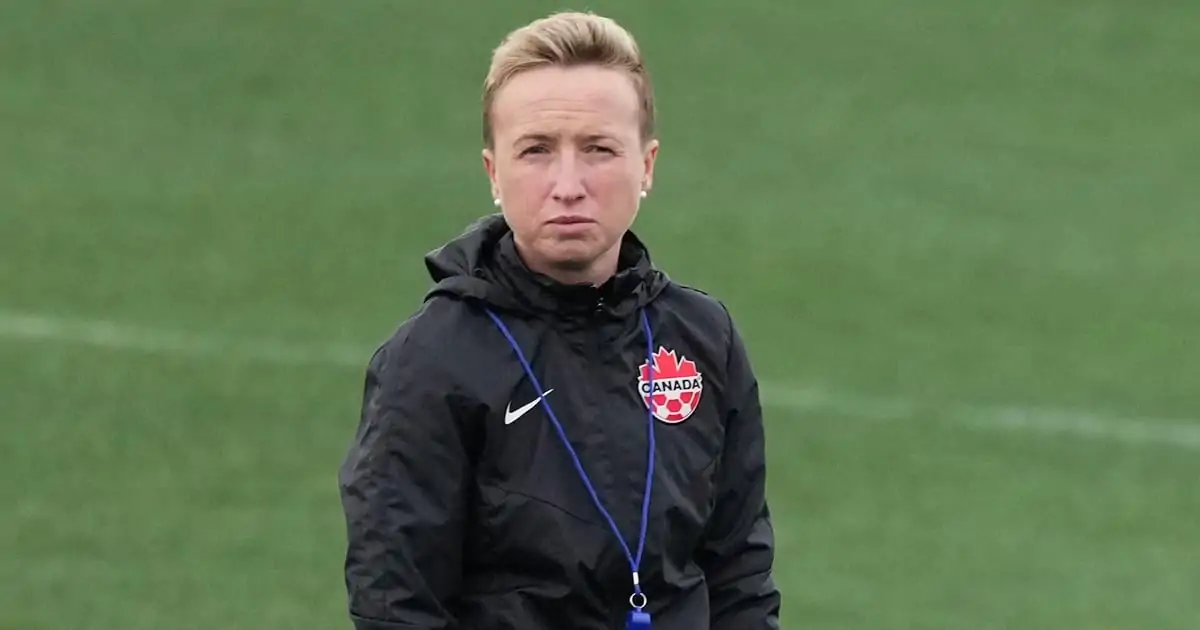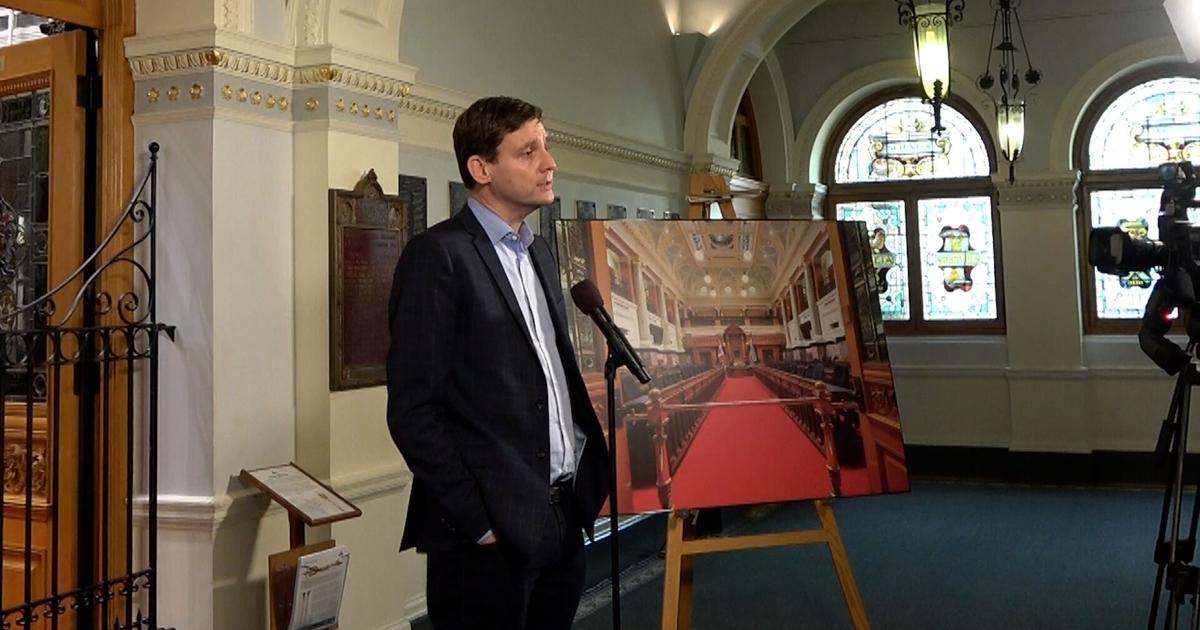News
Albertans dread a Canada Pension Plan exit. Will Danielle Smith’s $334B claim fix that?
Premier Danielle Smith may have wanted Alberta to go it alone on pensions for more than two decades, but to fulfil her dreams she’ll have to convert a wary Alberta public.
Polls have shown Albertans clearly don’t dream her dream with her. Pick your pollster: it was opposed by a margin of 31 per cent to 60 in a Janet Brown poll last October, or 21 per cent to 54 in Leger this spring.
With numbers like that, it’s a heftier turnaround task than persuading a majority of Quebecers to separate from Canada after decades of unwillingness. Or, for a local example, getting rural and small-town Albertans to suddenly prefer NDP over UCP.
Smith has the benefit of the premier’s bully pulpit to tilt public opinion in her favour on this one, to persuade people as she’s been arguing since at least 2003 that Alberta has “the obligation” to opt out of the Canada Pension Plan, and pay much lower premiums for equal or higher benefits.
She has now also armed herself with some of the biggest, rosiest numbers ever wielded in all the years of hardened conservatives trying to turn the public tide on the pension issue.
Billions upon billions
At the centre of her new argument is that eye-popping figure, $334 billion, which a government-commissioned report estimates Alberta is entitled to if it wants to become like Quebec, and separates from CPP.
That’s one-third of a trillion dollars, or more than half the CPP program’s total assets in a fund that collects contributions and pays out pensions of every Canadian who lives in a province that doesn’t start with Q.
For perspective, the amount Alberta is claiming as its rightful share of CPP is more than triple the ransom amount that Austin Powers film villain Dr. Evil demanded from world leaders, with pinky diabolically extended to his mouth. (That’s after the not-good doctor realized $1 million wasn’t a sufficient ask).
It’s also nearly equivalent to the value of Alberta’s entire economy in a year.
Sovereignist leaders would say: separate, and “all this becomes possible.” Smith was musing Thursday about how all sorts of good becomes possible if Albertans agree to start their own nest egg with a $334-billion principal.
Dramatically slashed premiums! Larger paycheques! Higher benefits for seniors! Maybe a $10,000 bonus for retirees!
But the reality checks on the Lifeworks report’s central assumption rolled in almost instantly after the astronomical estimate rolled off the premier’s tongue.
It’s an “impossible figure,” says Michel Leduc, senior managing director of the non-partisan Canadian Pension Plan Investment Board, which stewards the assets for Canadians. While he maintains any province has the legal right to withdraw and start its own pension plan, he urged skepticism of the numeric claims.
If other provinces used the “alternate formula” and demanded their shares be paid out too, he explained, there would be a negative balance by the time Ontario, British Columbia and Alberta left. (Sorry, other provinces.)

While Smith attributed Alberta’s share to the hard work of Albertans, the Lifeworks report itself attributes about 80 per cent of the province’s claimed share to investment income — the amount CPPIB has made by investing contributions, most of that since the 1990s reforms that boosted CPP premiums but also made the pension board a global investment heavyweight.
If Alberta had its pension funds outside that larger pan-Canadian pool, it’s far from a given that it would have performed nearly as well all these decades.
One could hear a scoff in the voice of University of Calgary economist Trevor Tombe as he spoke of the outsized hunk — half! — of the pension pie Alberta believes it deserves. “I think it was a little problematic that the government’s hanging its hat on half the CPP assets, which you think is kind of transparently unreasonable and not going to fly anywhere else in the country,” he said.
In Tombe’s own newly published paper, he estimates Alberta would be more reasonably entitled to 20 or 25 per cent of CPP’s present assets. CPPIB has not worked out its own figure, but Leduc said Tombe’s math is much closer to a realistic figure, though even that may be high.
The ultimate number that Alberta would scoop up if it actually pursues the Alberta Pension Plan dream isn’t Alberta’s to determine, or Lifeworks’ or Tombe’s or even CPPIB’s.
The federal government ultimately determines the asset transfer to a withdrawing province, likely in consultation with the other provinces.
The spectre of higher pension contributions in an Alberta-less CPP may soon attract ire in the rest of Canada. Alberta leaders have a long tradition of spats with Ottawa, but this pie-slice-haggling could draw in Smith’s fellow premiers.
But the $334-billion claim will resonate with a slew of people in this province. They have spent generations absorbing conservative rhetoric about how we hard-working, high-earning Albertans send billions of dollars to federal coffers in taxes and premiums, and get far fewer billions returned to us. When the Kenney government held a referendum that purported to demand an end to the equalization program, 62 per cent of voters said yes, a fact Smith often mentioned as she kicked up her rhetorical campaign Thursday.
But in a nod to public discomfort on the pension question, Smith doesn’t even want to commit to a referendum yet, which she’s long promised as a necessary prelude to an APP — and wouldn’t happen until at least 2025, Finance Minister Nate Horner explained to CBC News.
The premier instead appointed an engagement panel to see where public mood is on this. It will be helmed by Jim Dinning, the former provincial treasurer who helped negotiate the modern CPP in the 1990s, and who ran for the Tory leadership decidedly opposed to a candidate who promised an APP — but now says he views the idea as an “intriguing opportunity” that could bring massive investment potential into this province.
Provincial government is asking Albertans if they want to leave Canada’s pension plan. Premier Danielle Smith released a report on the feasibility of an Alberta pension plan today, but those who oppose the plan say this is more about politics than pensions.
An Alberta nest-minder
That opened one massive unknown among the many unknowns on what Alberta’s pension plan would look like. Theoretically, the fund could remain managed by CPPIB, but that would have to be approved in legislation by the Ottawa and other provinces that Alberta wishes to spurn here.
Smith could alternately task the Alberta Investment Management Co. (AIMCo) to manage Albertans’ pensions, but that body has not brought in nearly as sterling returns as the federal wealth manager, and is more susceptible to political intervention than the way CPPIB is set up.
To the many Albertans who are unsettled or spooked by the idea of abandoning the stability and reliability of the Canada Pension Plan, Smith is reassuring them they’ll be guaranteed the same benefits or better, and the same contribution rates or better.
She emphasizes the better, and purports there are 344 billion reasons to believe her on that.
There aren’t nearly as many reasons to question that number. But there are several, and when you add in all the uncertainties and risks that surround this monumental go-it-alone leap Alberta’s premier is proposing — well, that figure is probably pretty large as well.

News
Toronto Sceptres open camp ahead of second PWHL season |

The Toronto Sceptres have opened training camp for the upcoming PWHL season, with a new logo, new colours, new jerseys and a new primary venue in Coca-Cola Coliseum. The team has a lot to look ahead to after a busy off-season and successful inaugural campaign. (Nov. 12, 2024)
News
Major shakeup at Canada Soccer in wake of drone-spying scandal |

After a lengthy independent report on the Summer Olympic drone-spying scandal, Canada Soccer says women’s head coach Bev Priestman, assistant coach Jasmine Mander and analyst Joey Lombardi will not be back with the organization. It found the “practice of conducting surreptitious surveillance of opponents” predated this summer’s Paris Olympics. Former coach John Herdman has yet to give evidence. (Nov. 12, 2024)
News
Eby pays tribute to former B.C. premier John Horgan |

B.C. Premier David Eby says John Horgan was an inspirational leader who guided the province’s New Democrats out of the political wilderness after 16 years in Opposition. Eby says his predecessor as premier, who has died after a third bout with cancer, was known for his compassion for people from all walks of life but also his sharp tongue. (Nov. 12, 2024)
-

 News13 hours ago
News13 hours agoChrystia Freeland says carbon rebate for small businesses will be tax-free
-

 Business24 hours ago
Business24 hours agoJapan’s SoftBank returns to profit after gains at Vision Fund and other investments
-

 News24 hours ago
News24 hours agoSTD epidemic slows as new syphilis and gonorrhea cases fall in US
-

 News13 hours ago
News13 hours agoSwearing-in ceremonies at B.C. legislature mark start of new political season
-

 News13 hours ago
News13 hours agoNew Brunswick premier confirms her Liberal government will draft carbon pricing plan
-

 News13 hours ago
News13 hours agoFormer B.C. premier John Horgan, who connected with people, dies at 65
-

 News13 hours ago
News13 hours agoB.C. teen with bird flu is in critical care, infection source unknown: health officer
-

 News13 hours ago
News13 hours agoFederal government launching research institute for AI safety






















